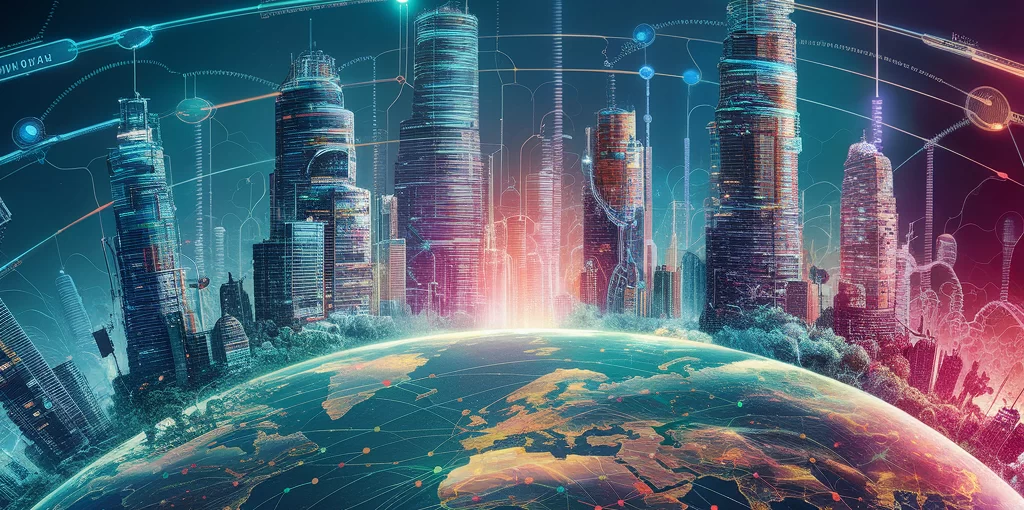In the rapidly evolving world of global commerce, advanced technologies such as blockchain and artificial intelligence (AI) are set to revolutionize supply chains by enhancing efficiency, accuracy, and sustainability. These technologies are transforming traditional supply chain models, offering unprecedented levels of transparency and operational excellence.
Blockchain Technology: Enhancing Transparency and Security
Blockchain technology, known for its secure and immutable ledger, is increasingly being adopted in supply chains to ensure transparency and traceability. By recording every transaction on a decentralized ledger, blockchain allows all stakeholders to access real-time data about the origin, journey, and status of products. This transparency helps in preventing fraud, reducing errors, and ensuring that products meet regulatory standards. For instance, in the food industry, blockchain can trace a product from farm to table, providing consumers with detailed information about its source and ensuring that it is ethically and sustainably produced.
Artificial Intelligence: Driving Efficiency and Accuracy
AI is another game-changer for supply chains, offering predictive analytics, automation, and optimization. AI-powered systems can analyze vast amounts of data to forecast demand, identify patterns, and optimize inventory levels, reducing waste and improving efficiency. Machine learning algorithms can predict potential disruptions, such as delays or shortages, allowing companies to proactively manage risks and maintain smooth operations. Additionally, AI can automate routine tasks, such as order processing and inventory management, freeing up human resources for more strategic activities.
Sustainability: A Core Benefit
One of the most significant advantages of leveraging blockchain and AI in supply chains is their contribution to sustainability. These technologies enable more efficient resource utilization, reducing waste and emissions. For example, AI can optimize delivery routes to minimize fuel consumption, while blockchain ensures that sustainable practices are followed throughout the supply chain. By providing detailed insights into the environmental impact of products, these technologies empower companies to make more sustainable choices and demonstrate their commitment to environmental responsibility.
Case Studies: Real-World Applications
Several leading companies are already reaping the benefits of these technologies. For example, Walmart uses blockchain to track the origin of its leafy greens, ensuring food safety and reducing the time needed to trace contaminated products from weeks to seconds. Similarly, Unilever employs AI to optimize its supply chain, resulting in significant cost savings and improved efficiency.
Future Outlook: Continuous Innovation
As technology continues to advance, the potential for further innovation in supply chains is immense. Future developments could include the integration of Internet of Things (IoT) devices with blockchain and AI systems to provide even more granular data and real-time monitoring. Additionally, advancements in AI could lead to more sophisticated predictive models and automation capabilities, further enhancing supply chain efficiency and sustainability.
The integration of blockchain and AI into supply chains is not just a trend but a fundamental shift towards more efficient, accurate, and sustainable operations. By embracing these technologies, companies can enhance transparency, drive efficiency, and contribute to a more sustainable future, positioning themselves at the forefront of the next generation of global trade.
